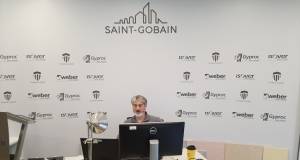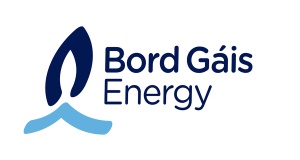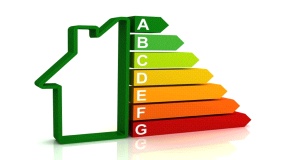- Waste
- Posted
Contract for controversial Dublin incinerator signed
Dublin City Council says it has successfully concluded negotiations
with its private sector partner for the construction of the
controversial Poolbeg incinerator.
Dublin City Council says it has successfully concluded negotiations
with its private sector partner for the construction of the
controversial Poolbeg incinerator.
The incinerator, an integral part of the city's waste management strategy, is designed to burn 600,000 tonnes of waste annually, generating electricity for up to 50,000 homes and supplying hot water heating for a further 60,000 households.
Yesterday's announcement that a contract had been signed came just two days after Minister for the Environment John Gormley reiterated his strong opposition to incinerator contracts of the type proposed for the Poolbeg peninsula.
Dublin City Council says it has successfully concluded negotiations with its private sector partner for the construction of the controversial Poolbeg incinerator. The incinerator, an integral part of the city's waste management strategy, is designed to burn 600,000 tonnes of waste annually, generating electricity for up to 50,000 homes and supplying hot water heating for a further 60,000 households.
Yesterday's announcement that a contract had been signed came just two days after Minister for the Environment John Gormley reiterated his strong opposition to incinerator contracts of the type proposed for the Poolbeg peninsula.
Under the terms of the contract, Dublin Waste to Energy Ltd is to design, build, finance and operate the incinerator for 20 years. A key "put or pay" clause requires Dublin City Council to guarantee the waste annually, or make loss of profit payments to the company instead.
There is also a "windfall clause" in the contract which guarantees payments to the city council if profits reach specific levels.
The contract does not require Dublin Waste to Energy to provide the infrastructure for the hot water district heating system, but a spokesman said yesterday that the council was already installing the pipework across the Liffey to serve developments at Spencer Dock.
Dublin Waste to Energy Ltd is a joint venture company owned by Covanta Energy, USA, a subsidiary of Covanta Holding Corporation and Dong Energy Generation A/S, Denmark, formerly known as Elsam Kraft A/S.
Negotiations hit a rocky patch earlier this year when Eslam Kraft underwent restructuring. News of the restructuring led to then minister Michael McDowell claiming the deal was finished.
However, assistant city manager Matt Twomey yesterday said the difficulties had been successfully resolved. He said the project had been on-going since the late 1990s and the signing of the contract was a "milestone" along the way to its completion.
The Dublin Waste Plan proposes a target of 59 per cent recycling, and the amount of waste going to landfill is to be reduced from the current 70 per cent to just 16 per cent. But the plan envisages there would still be 25 per cent of Dublin's waste remaining that would be sent to the incinerator. However, in comments this week, Mr Gormley said guaranteeing waste to incinerators would act against waste minimisation efforts, including recycling and define waste management policy for up to 25 years.
While yesterday's announcement by the city council would appear to be in defiance of the Minister's views, The Irish Times understands that the contracts were actually signed between the city council and Dublin Waste to Energy two weeks ago.
A spokesman for the Minister said Mr Gormley was precluded from making any comment on the issue as the planning application was still before An Bord Pleanála.
Two other regulatory consents must be secured before the plant can go ahead. These are a licence from the Environmental Protection Agency and permission to generate electricity from the Commissioner for Energy Regulation
Tim O'Brien.
© 2007 The Irish Times 6.09.07
The incinerator, an integral part of the city's waste management strategy, is designed to burn 600,000 tonnes of waste annually, generating electricity for up to 50,000 homes and supplying hot water heating for a further 60,000 households.
Yesterday's announcement that a contract had been signed came just two days after Minister for the Environment John Gormley reiterated his strong opposition to incinerator contracts of the type proposed for the Poolbeg peninsula.
Dublin City Council says it has successfully concluded negotiations with its private sector partner for the construction of the controversial Poolbeg incinerator. The incinerator, an integral part of the city's waste management strategy, is designed to burn 600,000 tonnes of waste annually, generating electricity for up to 50,000 homes and supplying hot water heating for a further 60,000 households.
Yesterday's announcement that a contract had been signed came just two days after Minister for the Environment John Gormley reiterated his strong opposition to incinerator contracts of the type proposed for the Poolbeg peninsula.
Under the terms of the contract, Dublin Waste to Energy Ltd is to design, build, finance and operate the incinerator for 20 years. A key "put or pay" clause requires Dublin City Council to guarantee the waste annually, or make loss of profit payments to the company instead.
There is also a "windfall clause" in the contract which guarantees payments to the city council if profits reach specific levels.
The contract does not require Dublin Waste to Energy to provide the infrastructure for the hot water district heating system, but a spokesman said yesterday that the council was already installing the pipework across the Liffey to serve developments at Spencer Dock.
Dublin Waste to Energy Ltd is a joint venture company owned by Covanta Energy, USA, a subsidiary of Covanta Holding Corporation and Dong Energy Generation A/S, Denmark, formerly known as Elsam Kraft A/S.
Negotiations hit a rocky patch earlier this year when Eslam Kraft underwent restructuring. News of the restructuring led to then minister Michael McDowell claiming the deal was finished.
However, assistant city manager Matt Twomey yesterday said the difficulties had been successfully resolved. He said the project had been on-going since the late 1990s and the signing of the contract was a "milestone" along the way to its completion.
The Dublin Waste Plan proposes a target of 59 per cent recycling, and the amount of waste going to landfill is to be reduced from the current 70 per cent to just 16 per cent. But the plan envisages there would still be 25 per cent of Dublin's waste remaining that would be sent to the incinerator. However, in comments this week, Mr Gormley said guaranteeing waste to incinerators would act against waste minimisation efforts, including recycling and define waste management policy for up to 25 years.
While yesterday's announcement by the city council would appear to be in defiance of the Minister's views, The Irish Times understands that the contracts were actually signed between the city council and Dublin Waste to Energy two weeks ago.
A spokesman for the Minister said Mr Gormley was precluded from making any comment on the issue as the planning application was still before An Bord Pleanála.
Two other regulatory consents must be secured before the plant can go ahead. These are a licence from the Environmental Protection Agency and permission to generate electricity from the Commissioner for Energy Regulation
Tim O'Brien.
© 2007 The Irish Times 6.09.07
Last modified on Friday, 07 September 2007 16:59
Related items
-
 Saint Gobain launches online technical academy
Saint Gobain launches online technical academy -
 Bord Gáis calls it quits on home insulation business
Bord Gáis calls it quits on home insulation business -
 Two thirds of new Irish homes fail energy efficiency rules
Two thirds of new Irish homes fail energy efficiency rules -
 Brian Motherway named new chief executive of SEAI
Brian Motherway named new chief executive of SEAI -
 Government launches public consultation on building control
Government launches public consultation on building control -
 Fuel poverty finally taken seriously - Energy Action
Fuel poverty finally taken seriously - Energy Action

